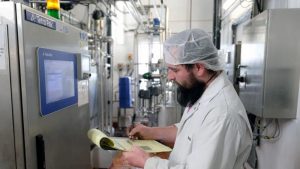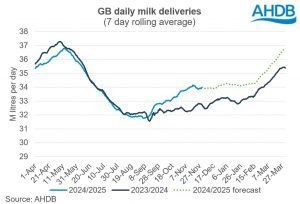
The price of milk has been soaring as the war in Ukraine threatens the supply of fertilisers and cow feed, of which Russia and Ukraine are leading exports.
As Russia and Ukraine account for more than a quarter of world wheat exports, while also being leading exporters of fertilisers, the war in Ukraine has seen the global price of food and energy shoot up in the past month.
The crisis in Ukraine has put further pressure on supply chains that had already been disrupted by Covid-19, rising gas prices and bad weather.
New Zealand, which controls 35 per cent of dairy exports, saw its milk output fall year on year by more than six percent, according to the Financial Times. Quoting figures from the Global Dairy Trade index, the FT reported the cost of anhydrous milk fat, a core dairy product, hit a record $7,111 per tonne on 15 March, while the price of whole milk powder hit an eight-year high.
“The conflict in Ukraine has added to an already complex Covid-19 operating environment, impacting global supply chains, the oil price, and global supply of grains,” Miles Hurrell, chief executive of New Zealand’s Fonterra, the world’s largest exporter of milk, said as the company reported interim results on Thursday.
Michael Oakes, Dairy Board chairman for the National Farmers’ Union, told Sky News the cost of fertilisers and animal feed, which comes from wheat, has almost doubled since the war began.
He said it forced him to take the difficult decision of slaughtering some of his dairy herd in order to cover the rising costs, which had already gone up due to Brexit and Covid-19.
“In January 2021 we were paying just under £300 for a tonne of fertiliser,” he said. “Before the war that had risen to £600.”
“Now it’s £1,000. And we’ve got a 60% increase in feed costs.”
It comes as the French farming minister Julien Denormandie said in Brussels on Monday ahead of a EU agriculture meeting the war between Russian and Ukraine could lead to a food crisis “on the global scale”. The World Food Programme (WFP), meanwhile, said on Friday the supply chains in Ukraine were collapsing, with key infrastructure such as bridges and trains destroyed by bombs and many grocery stores and warehouses empty.
The situation has sparked warnings of at least 40 million millions being plunged into poverty as prices have soared more than in 2007, when 155 million people were pushed into extreme poverty, the Center for Global Development (CGDEV) said on Friday.
The researchers said the most immediate concern was for direct wheat customers of Ukraine and Russia. These include countries like Lebanon, where 80 per cent of the wheat imported in 2020 came from Ukraine, as well as Libya, which relies on Ukraine for over 40 per cent of its wheat imports. Egypt is also heavily reliant on Russia and Ukraine for wheat with an estimated 80 per cent of imports coming from the two warring countries in 2021. Yemen, which remains the world’s worst humanitarian crisis, imports 27 per cent of its wheat from Ukraine and 8 per cent from Russia. Food prices, however, will rise worldwide as importers compete for alternative supplies, CGDEV researchers said.
Households in low-income countries allocate nearly half of their budgets to food, and higher prices will force “hard choices between food and other necessities”, they added.
Human Rights Watch (HRW) released a report on Monday calling for governments to ensure the conflict in Ukraine does not worsen the food crisis in Middle East and Africa as it said disruptions related to the war are already deepening poverty.
“Global food chains demand global solidarity in times of crisis,” said Lama Fakih, executive Middle East and North Africa director at HRW said. “Without concerted action to address the supply and affordability of food, the conflict in Ukraine risks deepening the world’s food crisis, particularly in the Middle East and North Africa.”

























